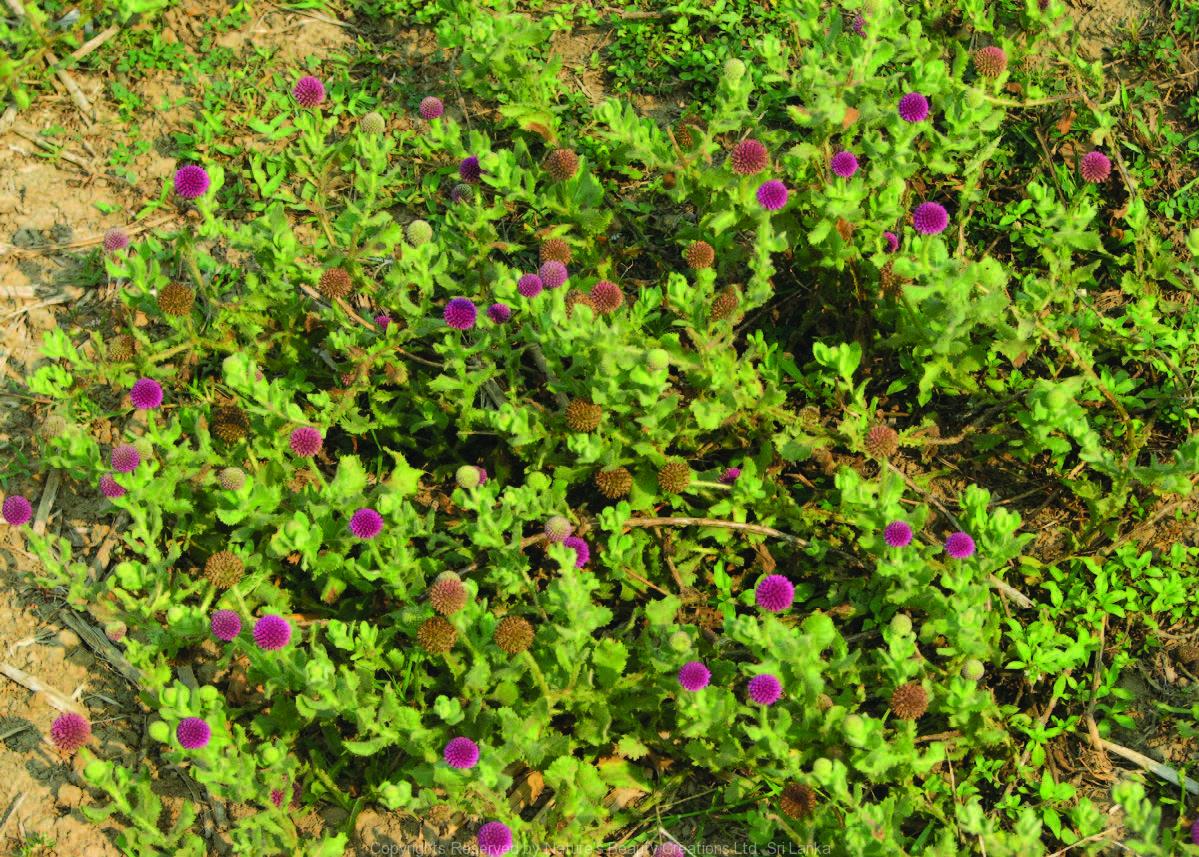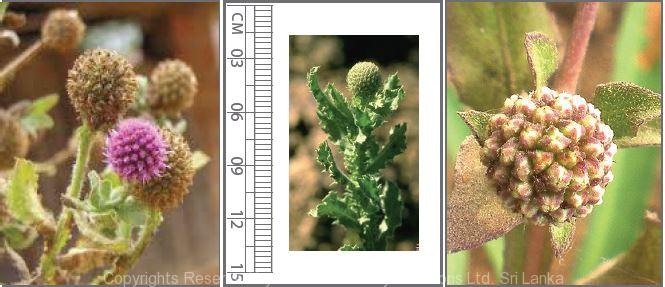

Traditional Knowledge
Useful plant parts :
Leaf
Uses in traditional medicine :
- Herbal soup prepared from fresh leaves and red onion is given as a liver tonic to patients suffering from yellow fever
Scientific Research
Chemical constituents:
Alkaloid: spaeranthine, sesquiterpenes: dihydroxy eudesmanoids and eudesmol derivatives and flavonoid glycosides from aerial parts
Bioactivity :
Alcohol and petrolium ether extract of flowers: wound healing, anxiolytic, antimicrobial, immunomodulator; petrolium ether and ethanol extract of plant: anticancer,anti-inflammatory, analgaesic; ethanol extract of root: antidiabetic, antihyperlipidaemic, antioxidative
Clinical:
An ingredient of “styplon” which is used together with “pilex” tablet and ointment for the conservative treatment of piles
References : Ali, A. et al., (2011), Anti-inflammatory and analgesic activities of ethanolic extract of Sphaeranthus indicus Linn, Pak J Pharm Sci, 24(3), 405-9. Bafna, A. R. And Mishra, S. H., (2007), Immunomodulatory activity of petroleum ether extract of flower heads of Sphaeranthus indicus Linn, J Herb Pharmacother, 7(1), 25-37. Basu, N. K. And Lamsal, P. P., (1946), A chemical investigation of sphaeranthus indicus linn, J. Pharm. Sci, 35(3), 274–275. Galani, V. J. et al., (2010), Sphaeranthus indicus Linn.: A phytopharma- cological review, Int J Ayurveda Res, 1(4), 247-53. Nahata, A. et al., (2013), Sphaeranthus indicus induces apoptosis through mitochondrial-dependent pathway in HL-60 cells and exerts cytotoxic potential on several human cancer cell lines, Integr Cancer Ther, 12(3), 236-47. Ramachandran, S. et al., (2011), Investigation of Antidiabetic, Antihyper- lipidemic and In Vivo Antioxidant Properties of Sphaeranthus indicus Linn. in Type 1 Diabetic Rats: An Identification of Possible Biomarkers, Evid Based Complement Alternat Med. Singh, S. K. et al., (1988), An antimicrobial priciple from Sphaeranthus indicus L. (family Compositae), Pharmaceutical biology, 26(4), 235-239. Ambavade, S. D. et al., (2006), Pharmacological evaluation of the extracts of Sphaeranthus indicus flowers on anxiolytic activity in mice, Indian Journal of Pharmacology, 38(4), 254-259. Jha, R. K. et al., (2009), Excision and Incision Wound Healing Activity of Flower Head Alcoholic Extract of Sphaeranthus indicus Linn. In Albino Rats, Global Journal of Pharmacology, 3(1), 32-37. Mishra, B. B. et al., (2007), A Novel Flavonoid C-glycoside from Sphaeranthus indicus L. (Family Compositae), Molecules, 12, 2288-2291. Pujar, P. P. et al., (2000), Eudesmanoids from Sphaeranthus indicus, Fitoterapia, 71(3), 264-268. Rangnekar, G.V. and Arora, O.P., (1974), Treatment of Piles with Indigenous Drugs – Pilex Tablets and Ointment along with Styplon, Indian Medical Journal, 10, 240.
Copyrights Reserved By
Natures Beauty Creations



